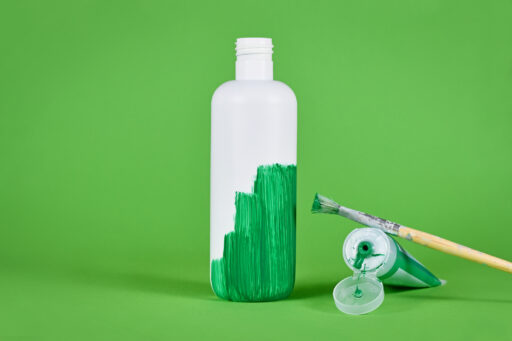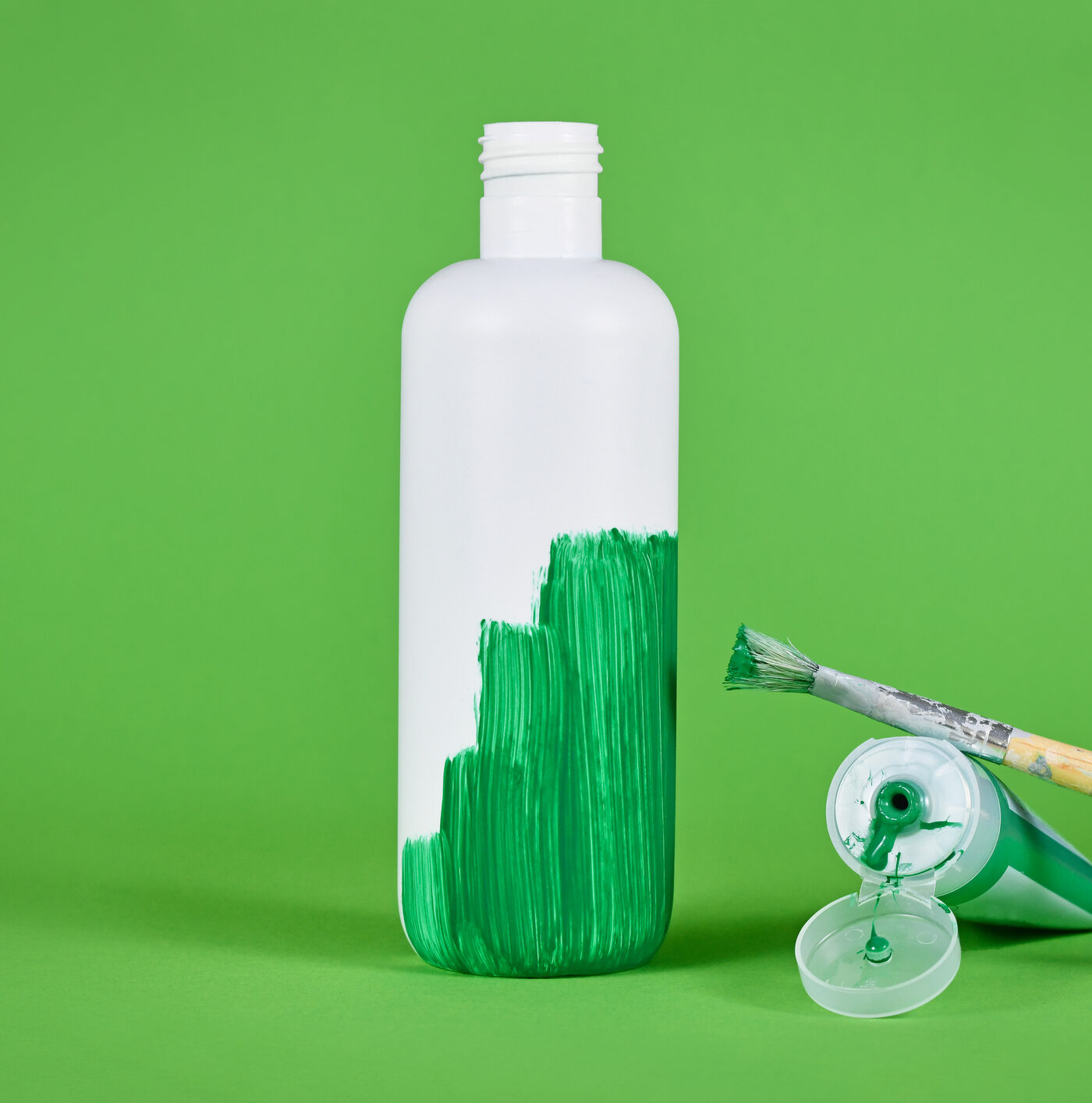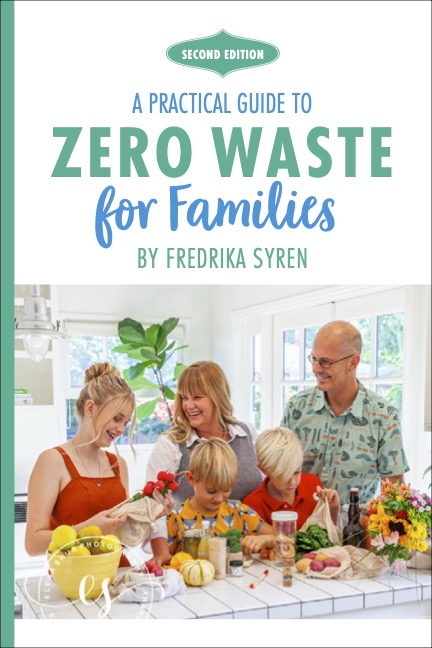Plastic Pollution Greenwashing
At this point, there is no denying that plastic pollution is an issue and can be found in all remote corners of the planet, including our drinking water and food chain. It’s time to stop relying on plastic. However, as more consumers take action to reduce their plastic use and demand environmentally sustainable products, companies are becoming increasingly adept at using deceptive tactics to greenwash consumers.

Understanding Greenwashing
What exactly is “greenwashing,” you might wonder? The term greenwashing refers to a company’s or a group’s misleading advertising of its products as good for the planet and consumers. Products promoted this way include personal care items, household cleaners, and many disposable commodities.
The green way has created a massive market for green products, but let’s not forget—every company’s main goal is to turn a profit. Unfortunately, greenwashing is, at best, a deceptive marketing tactic that can also harm the environment. Consumers misled by greenwashing might believe they are making a positive impact when, in reality, it’s quite the opposite.
So, as we are now in the middle of another Plastic Free July challenge worldwide, I feel it’s important to highlight the misleading nature of these claims, which are used to mask their actual environmental and health impacts.
The Plastic Greenwashing Trap
Here are some common plastic greenwashing tactics to be aware of:
Recyclable Plastic
Recyclable plastic is a ubiquitous label, a pure greenwashing tactic that makes consumers think we can put plastic in the recycling bin to solve our plastic problem. Although recycling is necessary to reduce plastic pollution, it’s ineffective in battling it.
First of all, plastic is harmful. In addition, just because a company claims their plastic is “recyclable” does not mean it will be recycled. Less than 9% of all plastics ever made have been recycled. The sad fact is that paper and glass can be recycled repeatedly, unlike aluminum cans, but plastic can’t and has a short life span.
The issue with plastic extends beyond its harm to the planet after disposal. Throughout its life cycle, plastic negatively affects human health and the environment. Every stage of the plastic life-cycle impacts human health, from wellhead to production, store shelves to human bodies, and waste management. Microplastics persist indefinitely in our air, water, and soil, posing risks to ecosystems and human health.
According to this report, 99% of plastic comes from fossil fuels. The extraction of oil and gas, particularly hydraulic fracturing for natural gas, releases an array of toxic substances into the air and water, often in significant volumes. Over 170 fracking chemicals used to produce the primary feedstocks for plastic have known human health impacts, including cancer, neurological issues, reproductive and developmental toxicity, impairment of the immune system, and more.
“Made of Recycled Plastic”
This misleading phrase gives consumers the impression that a product is directly helping clean up the Earth by being made of plastic waste. Many businesses and nonprofits are developing great ways to divert plastic from landfills to be recycled or upcycled into new products. Don’t get me wrong—this is a great way to ensure plastic waste will not end up in landfills and pollute the planet… at least not immediately. The issue is that tackling our plastic pollution problem this way addresses it from the wrong end.
We cannot solve the plastic pollution problem we’re facing on Earth if we don’t first turn off the tap. Upcycling plastic waste into new products only really masks the core issue of how the plastic ended up being a waste in the first place. It will continue to be a problem since, sooner or later, that upcycled item will end up in a landfill and continue to pollute the planet, so upcycling it solved nothing.
Oxo-degradable Plastic
Oxo-degradable plastic is tricky because the products are made from this type of plastic and are often marketed as an eco-friendly alternative to conventional fossil-fuel plastics. Unfortunately, they are still harmful—oxo-degradable plastics are conventional plastics mixed with additives meant to speed up the rate at which they break into smaller pieces. This just speeds up the creation of microplastics, and when they end up either in the environment or landfills, these plastics still take years to break down, and during this process, they release harmful chemicals.
Bioplastic
It has become more common to find products made with Bioplastic, also known as biodegradable plastic or plastic made from plants. This is a type of plastic that is not derived from petroleum and may even have a lower carbon footprint. However, bioplastics are chemically identical to regular plastics. Since bioplastics are fairly new, more research is needed to know how these products break down in our environment. Until we do more research, bioplastic are just not the answer.
Green packaging or symbols
Consumers often respond positively to green packaging and symbols since we all want to choose a better option for the planet when buying things. The truth is that this is the oldest and most used greenwashing tactic. Colored green depicting nature or plants does not mean the product is environmentally friendly. The smartest thing we can do is to read the label and research this product before choosing whether it is good for the environment or not. Don’t let clever marketing tell you otherwise.
What can you do as a consumer?
Support small and local businesses that are less likely to engage in greenwashing!
You’re powerful as a consumer! You might not think what you do as a consumer matters much, but the truth is that you hold significant power and can influence business practices and products. The more consumers demand better packaging and sustainable practices, the more likely businesses are to reconsider and commit.
Ultimately, it’s crucial to acknowledge that all plastics, whether single-use or multi-use, have detrimental effects on the planet and human health. It’s time to challenge ourselves to reduce our dependence on plastic and demand plastic-free alternatives.







